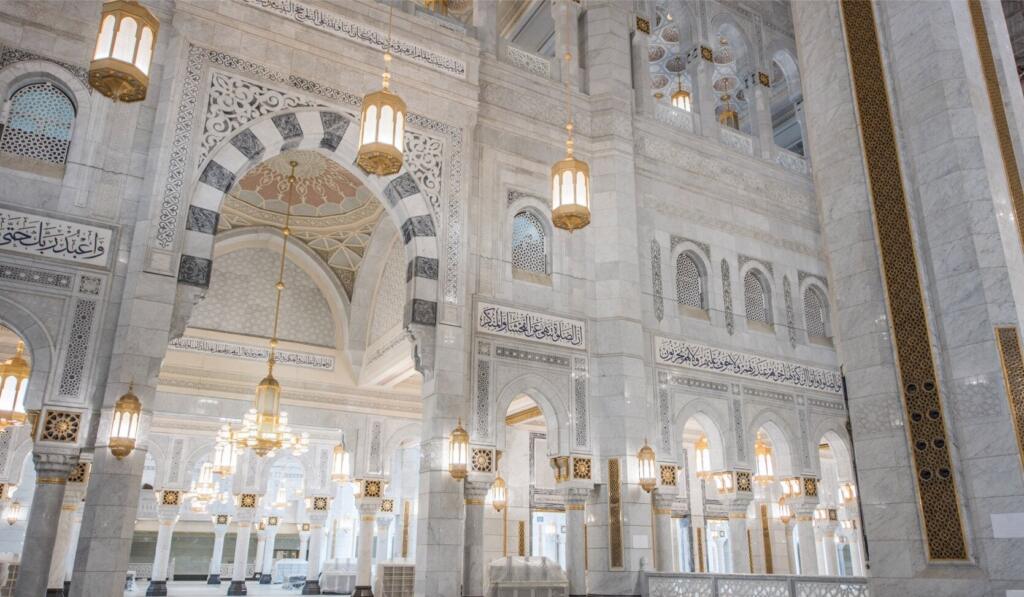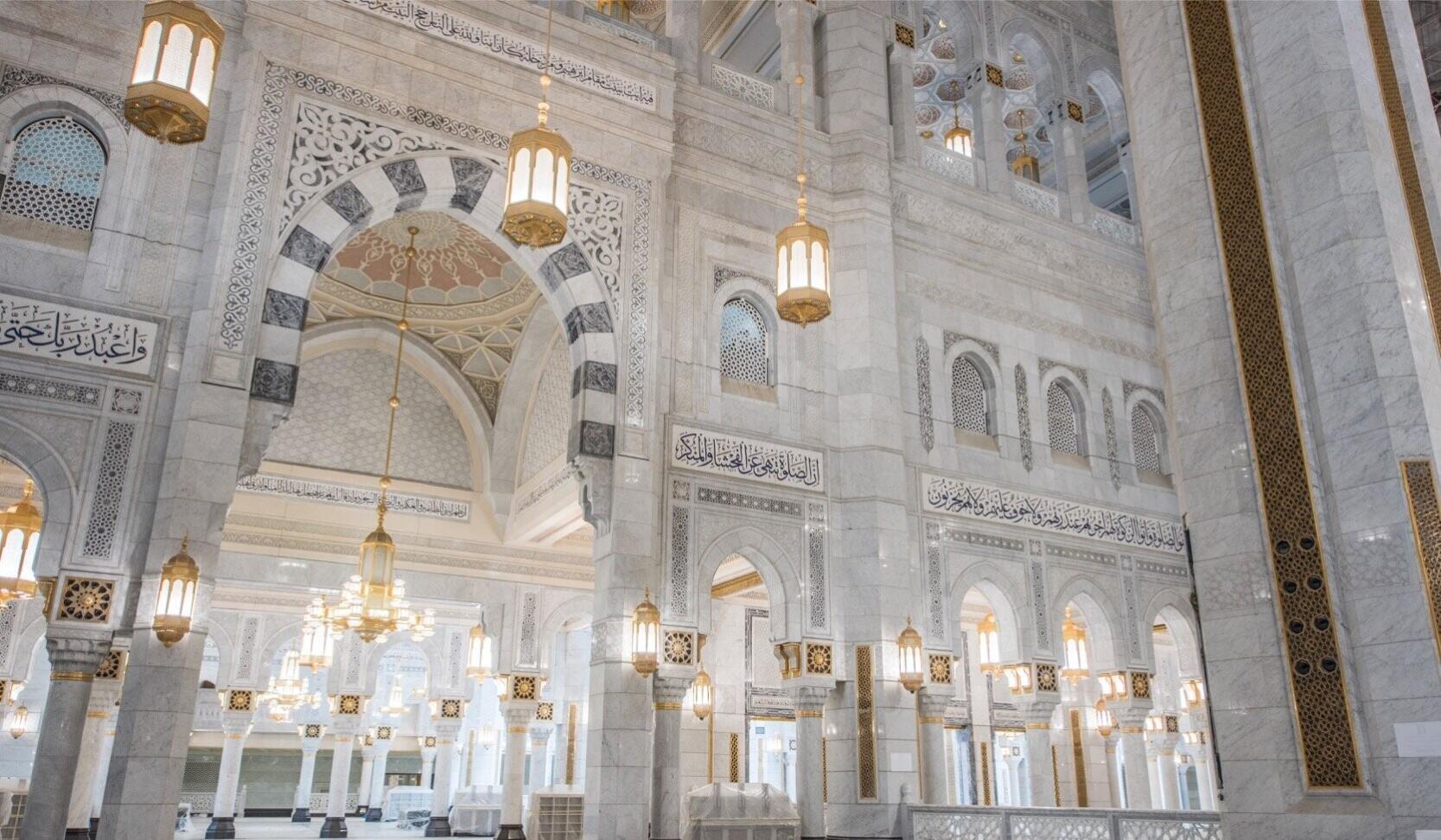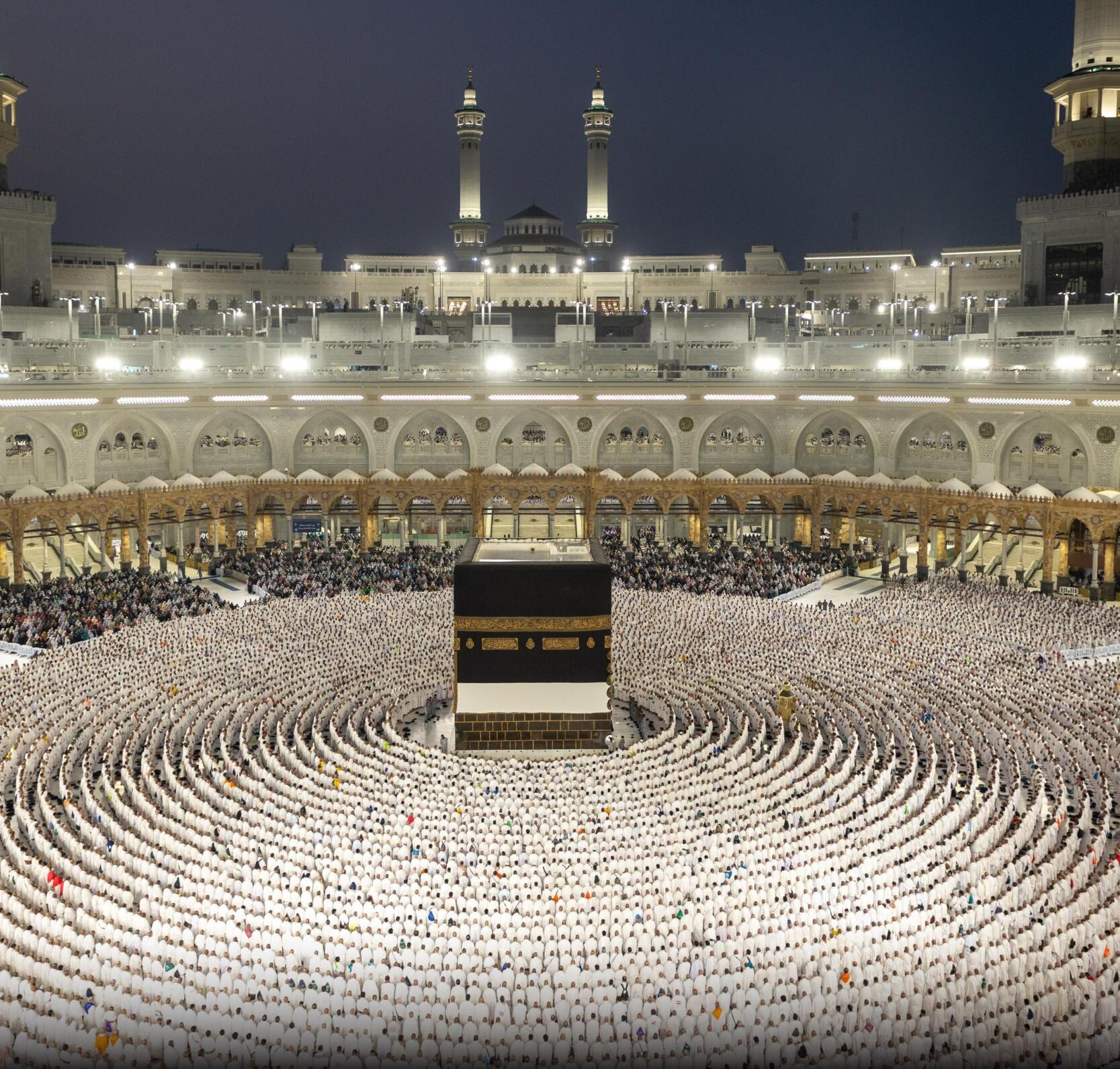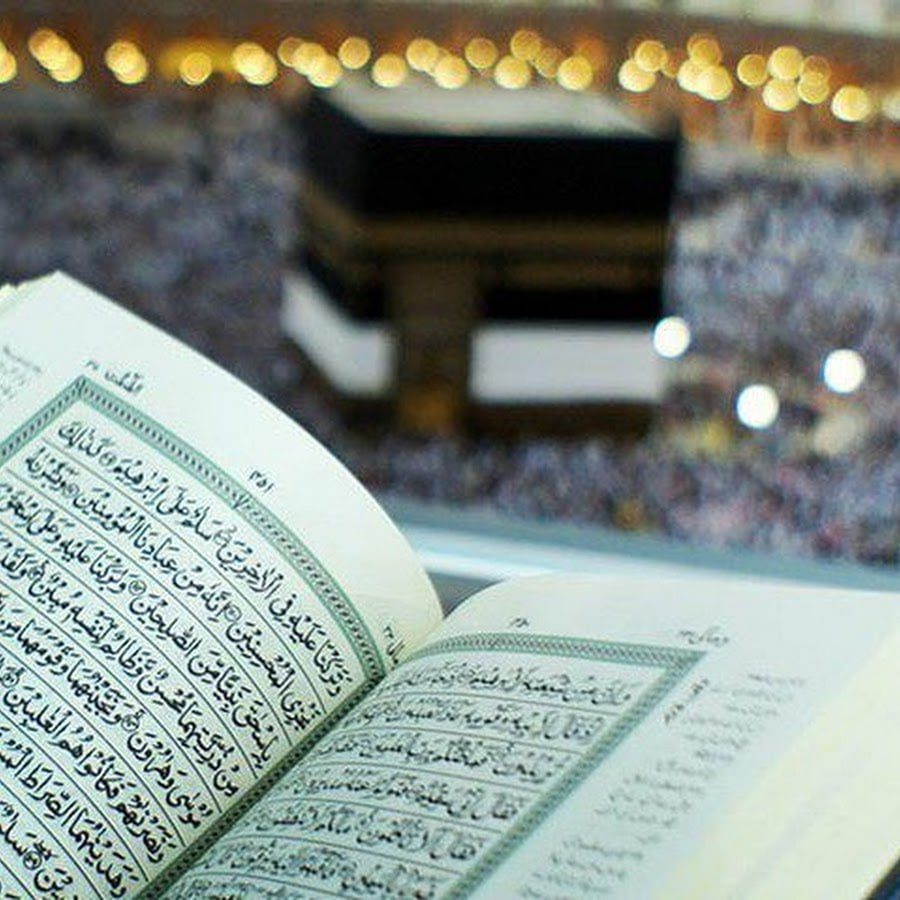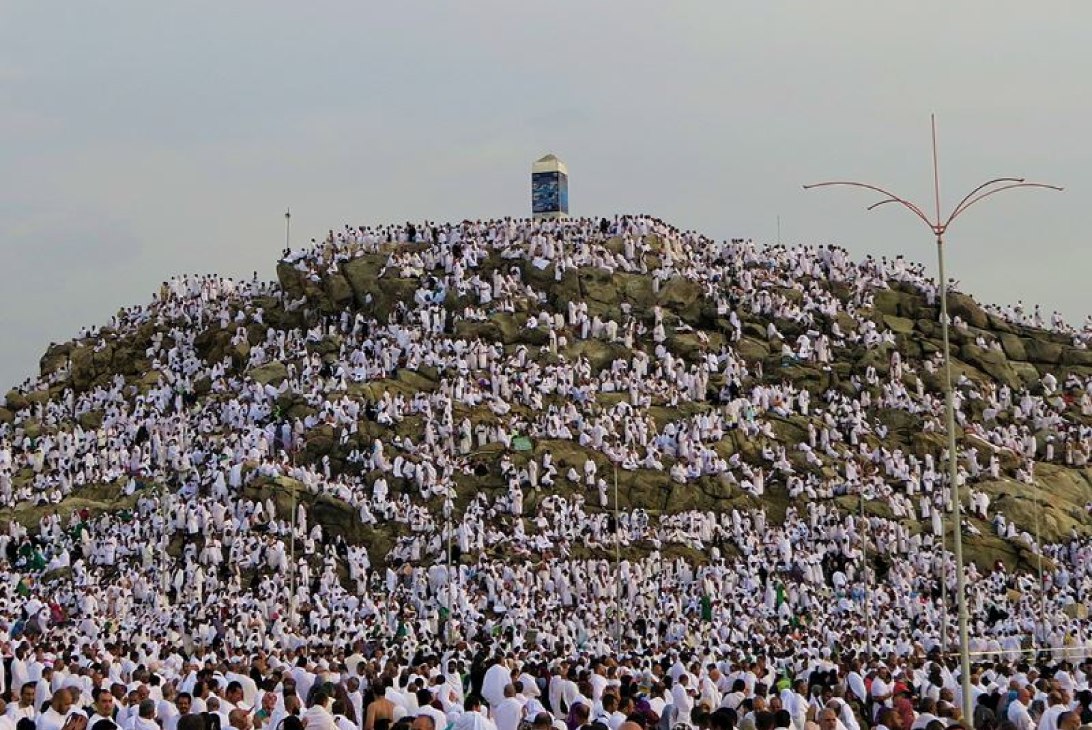وَلِكُلِّ أُمَّةٍ جَعَلْنَا مَنسَكًا لِّيَذْكُرُوا۟ ٱسْمَ ٱللَّهِ عَلَىٰ مَا رَزَقَهُم مِّن بَهِيمَةِ ٱلْأَنْعَـٰمِ فَإِلَـٰهُكُمْ إِلَـٰهٌ وَٰحِدٌ فَلَهُۥٓ أَسْلِمُوا۟ وَبَشِّرِ ٱلْمُخْبِتِينَ
For every ummah (religious community) We prescribed the act of sacrifice, so that they may invoke the name of Allah over the livestock He provided for them: So, your God is One God, so submit to Him Alone. And give good news to those who turn to Him with humility; (22:34)
- One of the greatest indicators of the lofty status of an act of worship is that it has been prescribed across all divine revelations e.g. sacrificing animals in the Name of Allah.
:فَإِلَـٰهُكُمْ إِلَـٰهٌ وَٰحِدٌ
So, your God is One God
- When Allah ﷻ made it clear that the sacrifice of livestock is a shared practice across nations, He concluded the verse with: ‘So, your God is One God, so submit to Him Alone’. This is a clear indication that the greatest bond uniting all nations is the oneness of Allah.
- Once again, there is an emphasis on tawḥīd and complete submission to Allah.
:وَبَشِّرِ ٱلْمُخْبِتِينَ
And give good news to those who turn to Him with humility
- Ḥajj should nurture humility in your heart: humility with Allah and humility with His creation. Allah loves the humble, easygoing servant who overlooks the mistakes of others. You are just one among millions in the crowd, dressed in simple clothing like everyone else and performing the same actions.
- Allah loves it when you go to Him with a broken heart. Throughout your ḥajj, humble yourself to Him and express your ʿubūdiyyah (servitude).
- Do this by remembering your sins which Allah has kindly concealed for you and reflecting on the sheer generosity and grace of Allah ﷻ.
- In the next āyah, Allah ﷻ outlines four qualities of the mukhbitīn.
ٱلَّذِينَ إِذَا ذُكِرَ ٱللَّهُ وَجِلَتْ قُلُوبُهُمْ وَٱلصَّـٰبِرِينَ عَلَىٰ مَآ أَصَابَهُمْ وَٱلْمُقِيمِى ٱلصَّلَوٰةِ وَمِمَّا رَزَقْنَـٰهُمْ يُنفِقُونَ
those whose hearts are filled with awe when Allah is mentioned, who patiently endure whatever may befall them, and who establish prayer and donate from what We have provided for them. (22:35)
- Focus on attaining these four qualities during your ḥajj and beg Allah to make them your permanent traits post-hajj too.
- Reflect: What is the state of your heart when Allah is mentioned? Do you ever tremble out of awe for Him?
وَٱلْبُدْنَ جَعَلْنَـٰهَا لَكُم مِّن شَعَـٰٓئِرِ ٱللَّهِ لَكُمْ فِيهَا خَيْرٌ فَٱذْكُرُوا۟ ٱسْمَ ٱللَّهِ عَلَيْهَا صَوَآفَّ فَإِذَا وَجَبَتْ جُنُوبُهَا فَكُلُوا۟ مِنْهَا وَأَطْعِمُوا۟ ٱلْقَانِعَ وَٱلْمُعْتَرَّ كَذَٰلِكَ سَخَّرْنَـٰهَا لَكُمْ لَعَلَّكُمْ تَشْكُرُونَ
“We have made sacrificial camels (and cattle) among the symbols of Allah for you. There is much good in them for you, so invoke Allah’s name over them as they are lined up for sacrifice. Then when they have fallen down dead, eat from it, and feed those who do not ask, as well as those who do. We have subjugated them to you in this way so that you may be thankful.” (22:36)
خَيْرٌ
good
- There are worldly benefits for you in sacrificing animals along with reward in the hereafter.
وَأَطْعِمُوا۟ ٱلْقَانِعَ وَٱلْمُعْتَرَّ
and feed those who do not ask, as well as those who do
- As believers, we have a duty of care towards each other.
Reflect: Do you look out for people you can help without them ever needing to ask, and give to them without embarrassing them?
Act: Give to the beggars and to those who do not beg. Be generous.
:سَخَّرْنَـٰهَا
We have subjugated them to you
- Allah ﷻ subjugates these animals for you. Despite their large sizes, humans are able to control them, ride them and slaughter them for their personal gain.
لَعَلَّكُمْ تَشْكُرُونَ
so that you may be thankful
- In these āyāt, Allah ﷻ commands you to express gratitude for the sacrificial animals by: (1) offering them in His Name Alone; (2) feeding the poor from them; (3) humbling yourself before Him; (4) having taqwā; and (5) carrying out the sacrifice with iḥsān (excellence).
لَن يَنَالَ ٱللَّهَ لُحُومُهَا وَلَا دِمَآؤُهَا وَلَـٰكِن يَنَالُهُ ٱلتَّقْوَىٰ مِنكُمْ كَذَٰلِكَ سَخَّرَهَا لَكُمْ لِتُكَبِّرُوا۟ ٱللَّهَ عَلَىٰ مَا هَدَىٰكُمْ وَبَشِّرِ ٱلْمُحْسِنِينَ
“Never does their meat or their blood reach Allah, but what does reach Him is your taqwā (piety). He has subjugated them to you in this way so that you may glorify Allah for having guided you. Give good news to those who do good. (22:37)
- Islam is not just about the outward physical rituals. The actions of the heart (e.g. love, fear and hope in Allah) are the ‘goal’ and the physical actions are the ‘means’ to achieve the goal.
- The purpose of sacrificing an animal is not the meat or the blood shed. It is legislated so that you remember Allah and be sincere to Him. Worship without sincerity and taqwā is like a body without a soul: all form, no substance.
- The emphasis on the heart in the āyāt of ḥajj is greater than in the other pillars of Islam. This is perhaps because it’s easy to get caught up in the physical outward rituals, and forget the deeper intended outcome: taqwā.
- The verses of ḥajj repeatedly mention takbīr, dhikr, taqwā and matters of the heart. This is because most of the rituals of ḥajj are tied to physical actions and visible symbols. To prevent the heart from becoming attached to these outward forms, or from thinking they can cause harm or benefit, the Qur’ān redirects us to the true purpose of ḥajj: deepening īmān and cultivating taqwā.
Act: Throughout your journey, check your heart.
:لِتُكَبِّرُوا۟ ٱللَّهَ
so that you may glorify Allah
- The āyah highlights the importance of takbīr during these blessed days. Takbīr and taʿẓīm (glorifying, magnifying and revering Allah ﷻ) are the central themes running throughout ḥajj. The more you glorify Allah, the greater you think of Him and the lower you think of yourself and humble yourself. This is the essence of ʿūbūdiyyah.
Act: Keep repeating the takbīr during the days of ḥajj.
وَبَشِّرِ ٱلْمُحْسِنِينَ
Give good news to those who do good
- Feel joy as Allah ﷻ gives you the good news: if you have excelled in worshipping Allah and in being kind to His creation for His sake, rejoice in the worldly reward and eternal bliss in the hereafter.
Although the focus of the verses in Sūrah al-Baqarah differs from those in Sūrah al-Ḥajj, the two main purposes of ḥajj are common and clear in both: (1) dhikr and (2) taqwā. Keep this in mind throughout your journey.
The verses of ḥajj are not limited to the above two passages. The following are some more verses related to ḥajj, Makkah and Ibrāhīm (ʿalayhis-salām) which you can research, recite and reflect on.
| Surah Name | Surah No. | Verse(s) |
|---|---|---|
| al-Baqarah | 2 | 125-128; 158; 189; 217 |
| Aal-ʿImrān | 3 | 96-97 |
| an-Nisā | 4 | 1-2; 94-97 |
| al-Anʿām | 6 | 92 |
| al-Anfāl | 8 | 34-35 |
| at-Tawbah | 9 | 3-5; 7; 19; 28 |
| Ibrāhīm | 14 | 35-37 |
| al-Isrā’ | 17 | 1 |
| al-Ḥajj | 22 | 67 |
| al-Qaṣaṣ | 28 | 57 |
| al-ʿAnkabūt | 29 | 67 |
| ash-Shūrā | 42 | 7 |
| al-Fatḥ | 48 | 24-27 |
| al-Balad | 90 | 1-2 |
| at-T īn | 95 | 1-3 |
| al-Fīl | 105 | 1-5 |
| Quraysh | 106 | 1-4 |

